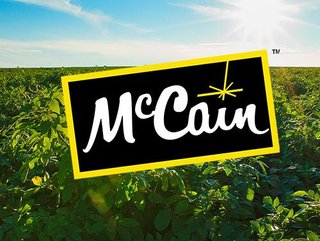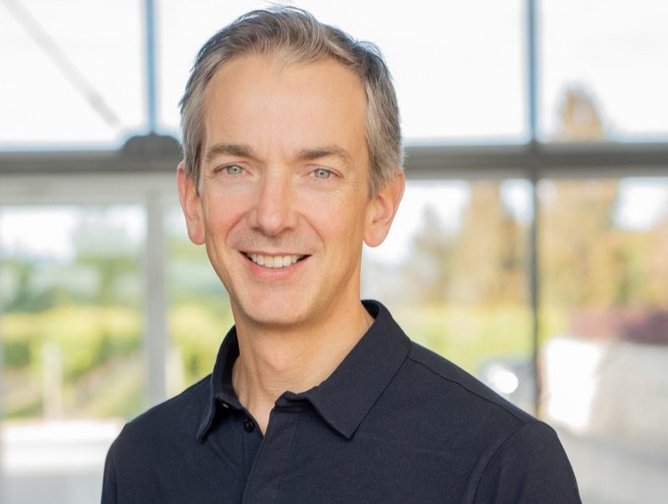How McCain Foods is Moving the Needle on Sustainable Farming

When it comes to harvesting potatoes, McCain stands tall.
A global leader in the production of frozen French fries and hash browns, McCain Foods is a household name with products distributed across more than 160 countries and annual revenues exceeding US$10.4 billion.
Making around 25% of all frozen potato products (1 in 4 fries in the world a McCain Foods fry), the family-owned business harvests nearly 6.8 million tonnes of potatoes every year.
With potato power comes responsibility – and it's a responsibility the Canada-based food company takes seriously.
While potatoes have the lowest carbon footprint of agricultural foods (0.21kg of carbon dioxide compared to the highest, beef, at 129.75kg), they are the world’s third most important food crop after rice and wheat – and as such, intensive farming has caused soil degradation, water scarcity, and biodiversity loss.
To tackle these issues and feed a rapidly growing global population, McCain is reimagining the future of sustainable potato growing with a nature-based approach designed to restore ecosystems and reduce emissions.
And it’s an approach that is already bearing fruit (well, potatoes) with over half (51%) of McCain’s global potato acreage now embracing this innovative and future-proof approach.
That’s according to the company’s recently released 2023 Global Sustainability Report, which shows significant progress towards its goal of 100% regenerative agriculture by 2030 – with 28% of the acreage having moved towards adoption of regenerative practices.
“Our goal is to help drive the transition to making our food and agricultural systems more sustainable and resilient,” says Max Koeune, President and CEO of McCain Foods.
“Our work on regenerative agriculture is central to our efforts in this space."
How McCain is Driving the Future of Regenerative Agriculture
Driving this rapid adoption is McCain’s ground-breaking Regenerative Agriculture Framework, a farmer-centric ecosystem-based approach that aims to lift farm resilience, crop yield and quality by improving soil health and water quality, optimising water use, enhancing biodiversity, and reducing the impact of synthetic inputs.
Among short-term targets on its regenerative journey, McCain is looking to reduce Scope 3 CO2 emissions per tonne from potato farming, storage and freight by 2030 – and to improve water-use efficiency in water-stressed regions by 2025.
At the heart of this acceleration towards regenerative agriculture is McCain’s direct relationship with farmers, a network of 3,500 partners around the world, to whom McCain provides technical and educational assistance and develops innovative financing solutions to offset the costs that come with adopting new technologies.
Among recent partnerships, in 2023, McCain launched financial solutions with Rabobank, Farm Credit Canada and NatWest.
“Partnership and knowledge are crucial to move forward," says Koeune.
"We will continue to look to stakeholders — from our farmers, to government, to financial institutions, NGOs, suppliers, customers and other players in the food system — to collaborate on this journey towards planet-friendly food.”
McCain’s Farm of the Future Driving Agricultural Change
Central to supporting the transition of farmers is the company’s Farms of the Future – an initiative launched three years ago that trials and tests regenerative agricultural practices.
Two active Farms of the Future are currently in operation, with the first season at Farm of the Future Arica and third season at Farm of the Future Canada now complete.
And according to McCain's sustainability report, these are already delivering on targets set – as well as hitting its 2025 goal with 21.9% of potatoes of water stress-tolerant varieties, McCain has improved water-use efficiency in water-stressed regions by 9.4% and delivered more than 23,500 hours of training to farmers.
By 2025, McCain plans to have three Farms of the Future operating in different growing regions around the world.
As Koeune explains: “The farm of the future is meant to bring together the technology of the 21st century and nature-based solutions and the way to achieve that differs from country to country – and that’s what this is about… nature-based, locally based solutions.”
“What we are really keen to prove is that the farmer of the future and regenerative agriculture can have a great impact on the soil, on water management, on biodiversity and be economically sustainable.

Among McCain’s highlights in smart and sustainable farming in 2023:
- 51% McCain’s global acreage that is ‘onboarded’ as part of its Regenerative Agriculture Framework, with 28% ‘engaged’
- US$1 million Future of Farming Fund launched with McDonald’s Canada
- First full year of Farm of the Future Africa completed
- 23,500 hours of training delivered to growers
Read McCain’s 2023 Sustainability Report.
*******************
Make sure you check out the latest edition of Sustainability Magazine and also sign up to our global conference series - Sustainability LIVE 2024.
*******************
Sustainability is a BizClik brand.






